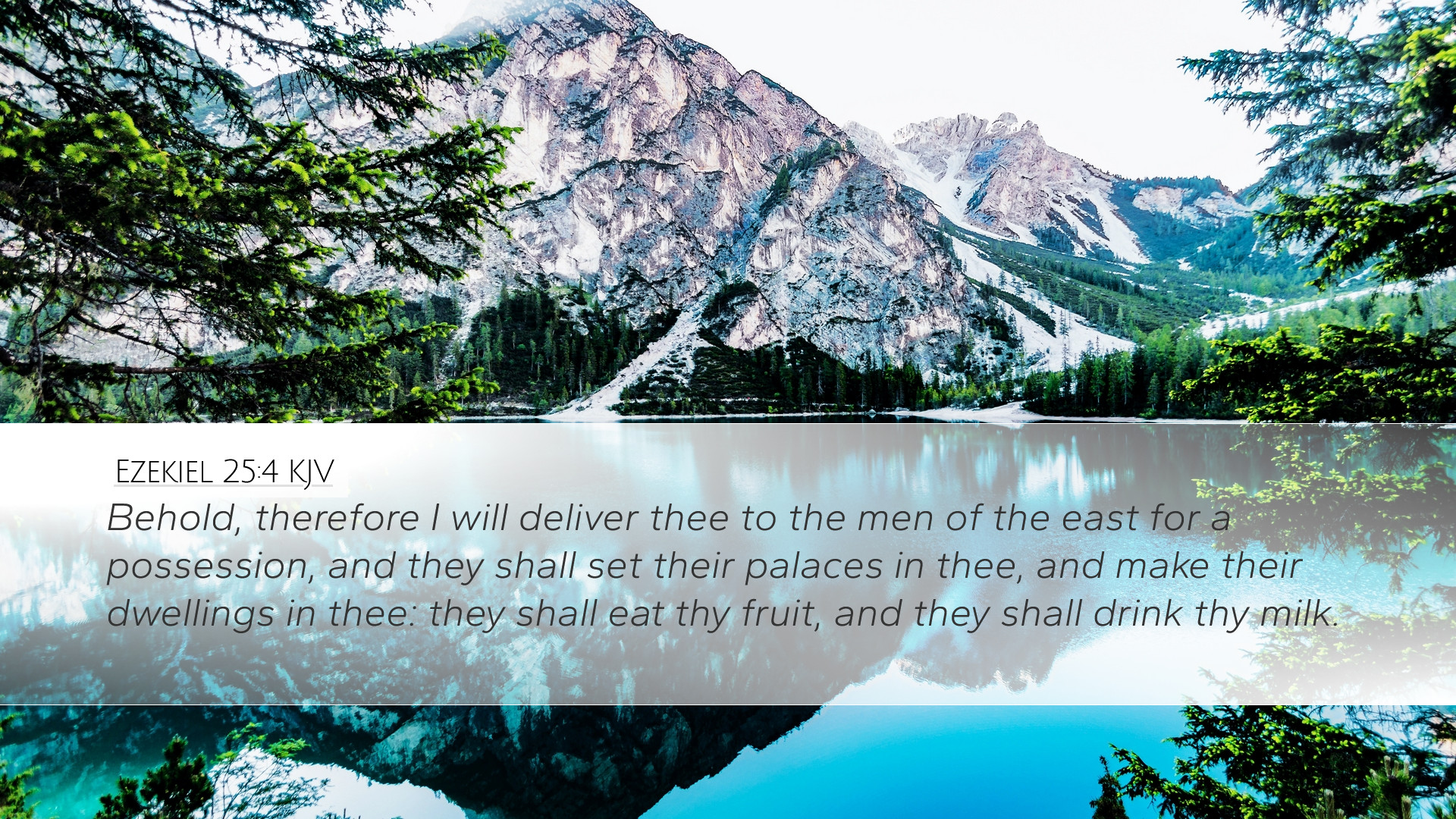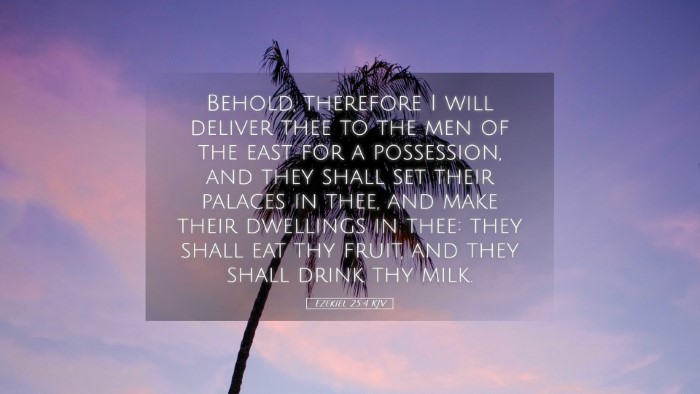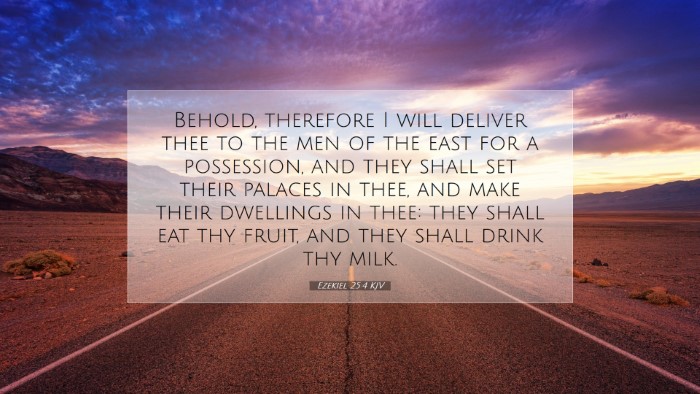Ezekiel 25:4 - Commentary Summary
Verse Context: Ezekiel 25:4 states: "Therefore, behold, I will deliver you to the men of the east for a possession, and they shall set their encampments among you and make their dwellings in you; they shall eat your fruit and they shall drink your milk." This proclamation comes amidst a series of divine judgments against various nations surrounding Israel.
Overview of Commentaries
This summary integrates insights from renowned biblical commentators such as Matthew Henry, Albert Barnes, and Adam Clarke. Each of these scholars provides a distinct perspective on the theological implications, historical context, and moral lessons derived from this verse.
Historical Context
Ezekiel's Ministry: At the time of this prophecy, Ezekiel served as a priest and prophet during the Babylonian exile. His messages frequently addressed the consequences of Israel's unfaithfulness and the impending judgments upon surrounding nations, including Ammon, Moab, Edom, and the Philistines.
Theological Insights
- Divine Judgment: As emphasized by Matthew Henry, the judgment pronounced in this verse is a testament to God's sovereignty over all nations. He notes that God's control extends beyond Israel, encompassing even their enemies, which demonstrates that no nation can ultimately escape divine justice.
- God's Use of Foreign Nations: Albert Barnes discusses how God utilizes foreign powers as instruments of judgment. In this case, the men of the east likely refer to the Babylonians or similar groups who would conquer and inhabit the land of Israel. This serves as a reminder that God can raise up nations to fulfill His purposes, whether for judgment or for the eventual restoration of His people.
- Symbolism of Consumption: Adam Clarke points out the implications of the imagery in eating fruit and drinking milk. This reflects the idea of total devastation and occupation, where the people of the land are utterly overrun and their sustenance becomes the spoils of their conquerors.
Exegesis of Key Phrases
The verse opens with "Therefore," which indicates a conclusion drawn from preceding judgments. Here we explore the implications of this transition:
- "I will deliver you": This phrase suggests an act of divine agency. God is identified as the one who initiates the action, underlining His role as both judge and ruler.
- "Men of the east": The men of the east symbolize not just geographical strangers but also impending destruction. In biblical literature, eastern nations often represent threats to Israel's security.
- "For a possession": This notion speaks to conquest and dominance, wherein the land and people of Israel would become the property of those invaders, emphasizing complete subjugation.
Moral and Spiritual Lessons
Reflection on God’s Justice: The passage serves as a profound reminder of God's holiness and justice. The prophets often reinforce the idea that sin leads to judgment, and as noted by Henry, this serves as a warning to both ancient Israel and contemporary believers regarding the seriousness of rebellion against God.
Lessons on Accountability: Albert Barnes notes that nations, much like individuals, are held accountable for their moral and ethical conduct. This accountability extends to actions against God’s people and how societies treat one another.
The Role of Suffering
From a pastoral perspective, Clarke elaborates on the theological implications of suffering and loss. The devastation foretold in Ezekiel 25:4 calls attention to the need for hope even in despair. For believers, this passage invites contemplation on the themes of redemption and divine faithfulness amidst dire circumstances.
Applications for today
Understanding God’s Plan: For theologians and students, this verse illustrates the overarching narrative of God’s plans throughout history, emphasizing the ultimate aim of restoration after judgment.
Contemporary Conflicts: The ongoing tensions within regions of the Middle East remind readers of the historical cycles of conflict and divine justice. Thus, pastors and church leaders are encouraged to reflect on how these ancient texts resonate with current realities and moral issues.
Conclusion
Ezekiel 25:4 serves as a stark reminder of God’s control over nations and the serious consequences of collective moral decay. Through the insights of Henry, Barnes, and Clarke, we are urged to consider divine justice, accountability, and the hope of restoration as we navigate the complexities of faith in a tumultuous world.


